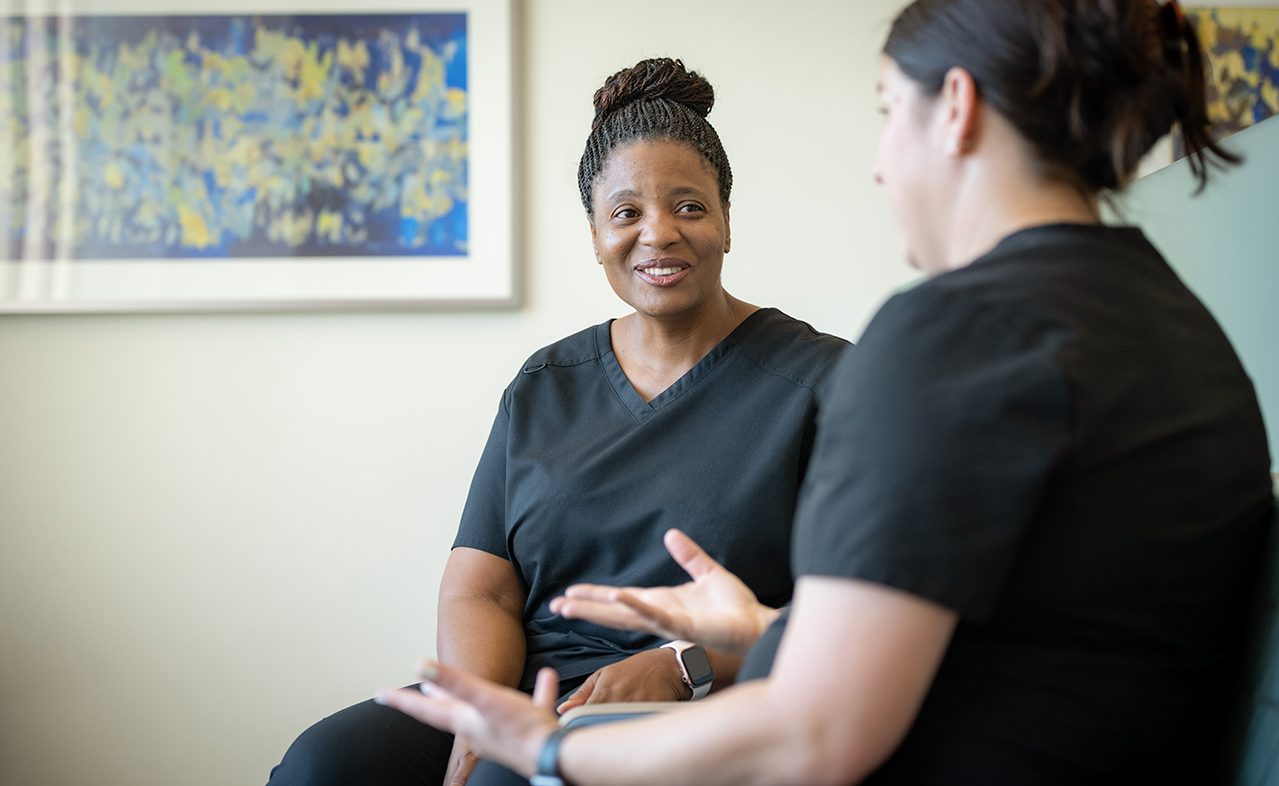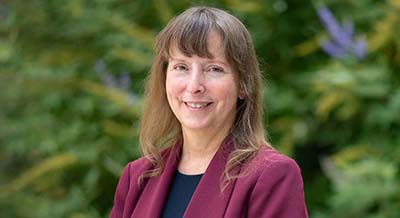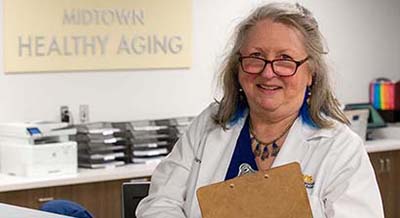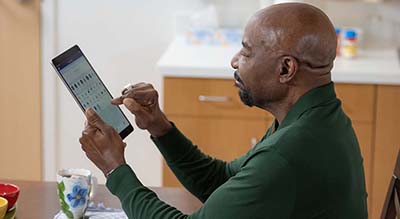More than half of Californians living with mental health issues don’t receive the psychiatric care they need and the situation is projected to get worse.
Over the next decade, the number of psychiatrists in the state is expected to decline by 34%. A bold initiative to solve this growing crisis began in January at the Betty Irene Moore School of Nursing at UC Davis, in partnership with the UCSF and UCLA Schools of Nursing. The remote-learning Post-Master’s Certificate Program will train 300 nurse practitioners to become psychiatric mental health specialists within the next five years.
“The downtrend in the number of care providers and the growth of mental health concerns is contributing to urgent workforce needs,” explains Stephen Cavanagh, UC Davis nursing school dean. “This curriculum was designed to prepare these advanced practice providers to address their patients’ mental health needs, while meeting a California health priority.”
And with the global pandemic taking a toll on people’s mental health worldwide, help cannot come soon enough. Nearly half of American workers have been suffering from mental health issues since the COVID-19 pandemic began, according to The Standard’s Behavioral Health Impact Update. And many don’t know where to turn for help.
“I see so many professional people dealing with anxiety and depression,” says Janet Meda, an assistant professor at the School of Nursing and a student in the program. “Yet depending on what they do, they don’t want a referral to a mental health professional on their record because of the stigma. And with a referral, it can take a long time to be seen.”
As a family nurse practitioner at the Sacramento County Health Center, Meda is accustomed to having long-standing relationships with her patients. She applied to the certificate program in order to provide one-stop care to tend all their needs.
“We cannot look at mental health and physical health problems in isolation,” she adds. “If a person has mental health problems, it affects the family and the community.”
The one-year program, supported by a $1.4 million grant from the California Health Care Foundation, combines remote-learning education with in-person clinical training. The flexibility of the part-time program allows students to remain working, which is convenient for those in rural areas where access to mental health care is even more difficult.
“UC Davis has discovered a new method of advancing nurse practitioners in multiple locations through telehealth,” explains Elizabeth Rice, associate dean for Student and Faculty Success and psychiatric mental health nurse practitioner. “The students employ therapy hundreds of miles from their location and can examine patients in their home. This improves patient care and eases people’s pain.”
Sharon Demeter, a nurse practitioner and workplace violence liaison for UC Davis Medical Center, is also a student in the program. She hopes it equips her to better serve the inpatient population and the employees who care for them in the same way staff cares for those having medical emergencies.
“Behavioral health crises are as significant as medical crises,” Demeter explains. “And a behavioral health response to these escalations works better than a security response. Our goal is to create a rapid response team for behavioral health emergencies, just like the rapid response teams that we now have in place for medical emergencies.”






